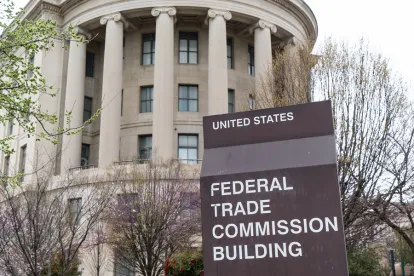As blogged about here, the FTC’s authority to seek monetary disgorgement relief from defendants in federal court is under assault. Consequently, all five FTC Commissioners have recently forwarded a letter to the Chairs and Ranking Minority members of the Senate Commerce and House Energy & Commerce Committees urging the Committees to pass legislation that would “restore Section 13(b) to the way it has operated for four decades.”
“Without congressional action, the Commission’s ability to use Section 13(b) to provide refunds to consumer victims and to enjoin illegal activity is severely threatened. As explained below, courts of appeals in the Third and Seventh Circuits have recently ruled that the agency cannot obtain any monetary relief under Section 13(b). Although review in the Supreme Court is pending, these lower court decisions are already inhibiting our ability to obtain monetary relief under 13(b). Not only do these decisions already prevent us from obtaining redress for consumers in the circuits where they issued, prospective defendants are routinely invoking them in refusing to settle cases with agreed-upon redress payments. Moreover, defendants in our law enforcement actions pending in other circuits are seeking to expand the rulings to those circuits and taking steps to delay litigation in anticipation of a potential Supreme Court ruling that would allow them to escape liability for any monetary relief caused by their unlawful conduct. This is a significant impediment to the agency’s effectiveness, its ability to provide redress to consumer victims, and its ability to prevent entities who violate the law from profiting from their wrongdoing. Accordingly, it is imperative that Congress act quickly so that the FTC can continue to effectively protect American consumers.”
The letter also states “[i]n addition, another recent Third Circuit decision jeopardizes the FTC’s ability to enjoin illegal conduct. In FTC v. Shire ViroPharma, the court held that the FTC can bring enforcement actions under Section 13(b) only when a violation is either ongoing or “impending” at the time the suit is filed. That decision unnecessarily limits the Commission’s ability to obtain relief for consumers who have been harmed by unlawful conduct that occurred in the past but is not ongoing. The decision also hampers the Commission’s longstanding ability to protect consumers by getting an injunction that prohibits defendants from resuming their unlawful activities in cases where the conduct has stopped but there is a reasonable likelihood that the defendants could resume their unlawful activities in the future. The decision also is impacting our ability to settle cases. Targets of FTC investigations now routinely argue that they are immune from suit because they are no longer violating the law, despite the fact that there is a likelihood of recurrence, and they make these arguments even in cases when they stopped violating the law only after learning that the FTC was investigating them.”
On November 3, 2020, Commissioner Rohit Chopra released a paper entitled “The Case for Resurrecting the FTC Act’s Penalty Offense Authority.” In the face of what appears to be the weakening of the FTC’s remedial authority, the paper illustrates the FTC’s commitment to deter and correct wrongdoing. It sets forth that the FTC should “resurrect one of the key authorities it abandoned in the 1980s: Section 5(m)(1)(B) of the FTC Act, the Penalty Offense Authority.”
The Penalty Offense Authority permits the FTC seek civil monetary penalties: (i) following a finding that a practice is unfair or deceptive; (ii) via a final cease-and-desist order entered in an administrative proceeding; and (iii) when a person and/or entity knowingly engages in such conduct after the entry of the order.
Importantly, the paper sets forth specific instances of conduct that would constitute a penalty offense, including, but not limited to, for-profit college fraud, income misrepresentations, deceptive online conduct, deceptive MLM practices, deceptive data harvesting and unlawful targeted marketing.
Lead generators and operators of online training and business coaching programs should take note.




 />i
/>i

